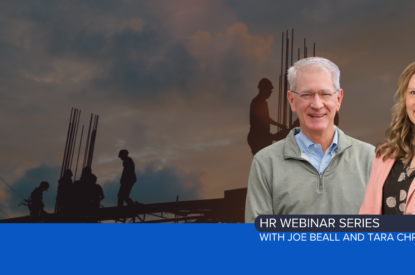“Our passion for the work and finding success is what keeps us going,” Krebs said. “We hire local people, which provides jobs, and they care more because it’s their street, their community, their city.”
Hurricane Katrina marked the first time that Mississippi used experts in government and the private sector to help with recovery from a storm. In the 17 years since Katrina hit, HORNE has managed disaster recovery programs across the nation and helped distribute billions of dollars in aid for disasters, including hurricanes, floods, fires and the COVID-19 pandemic.
Currently, HORNE oversees pandemic relief programs in Alabama, Arkansas, California, Louisiana, Maine, New Jersey, Tennessee, Texas and Virginia. So far, the firm has managed the disbursement of more than $7.3 billion in rental and mortgage assistance since the pandemic began in 2020.
When Katrina hit Mississippi, HORNE was a small accounting firm in the capital city of Jackson. HORNE’s partners felt the firm was ready for the challenge of helping residents on the coastline recover from the devastating storm that killed 238 people and left hundreds of thousands homeless and living in tents or trailers. This was the firm’s first government services contract.
The destruction was spread across three coastal counties and inland. The storm destroyed and damaged thousands of homes, and roads and bridges were impassable, making transportation difficult. The state emergency management agency had to find office space for state and federal workers who traveled to the area to assist in the recovery efforts, as well as for contract workers like HORNE.
The task was daunting. For weeks, there was no water or electricity. Gas stations and grocery stores were closed, many of them damaged by the hurricane. But once the shock wore off, Mississippians began rebuilding the communities where they lived and worked.
Licensed certified professional accountants from HORNE and other firms across the state managed the federal money pouring in to help residents get back to a somewhat normal life. HORNE team members who worked in coastal Mississippi during that time said the work helped the firm grow, but for them it was more than that.
“It wasn’t just about the work,” said Neil Forbes, who was part of the Government Services division and now serves as managing partner for the firm. “It was about the mission behind the work. I fell in love when I heard what the firm was doing and knew I could wake up every day and my job was to help someone get back in their house.
“To this day, we can drive to the Mississippi Gulf Coast and see what that first contract was,” he added. “But it’s not just there. Now, we’re helping folks in California, Florida, South Carolina, Puerto Rico and the U.S. Virgin Islands. We’ve been all over the country and continue to be all over the country.”
Today, the Government Services team is larger than the entire firm was in 2019. HORNE currently has more than 2,300 team members with offices in 11 states, Puerto Rico and the U.S. Virgin Islands.
When a disaster strikes, whether it’s a hurricane, flood, fire or pandemic, Congress creates programs to send millions, and sometimes billions, of dollars to help the communities affected. However, most of them don’t have the employees or experience to run these programs of that size, so they partner with firms like HORNE to help.
Since 2005, HORNE has overseen the disbursement of more than $103 billion in federal money, including $46 billion in programs from Housing and Urban Development, $25 billion from FEMA and $32 billion through the programs created after the COVID-19 pandemic hit the U.S.
One of the many success stories is the October 2015 Storm Recovery Program in South Carolina. Homes in 22 counties needed to be repaired or rebuilt after the 1,000-year flood event. The flood was generated partly by Hurricane Joaquin, a Category 4 storm. South Carolina chose HORNE to manage the program and work began in 2016.
In all, more than 2,700 homes were built or repaired across 30 counties in South Carolina, with $200 million being spent on that portion of the project. The final home was finished in October 2021, well before the target date set by U.S. Department of Housing and Urban Development.
“It was gratifying to complete this work and see all of these residents back in their homes after this devastating weather event,” Krebs said.
Because of the success of the 2015 Storm Flooding Program, South Carolina chose HORNE to lead the recovery efforts after two major hurricanes – Matthew and Florence. This is a $293 million program that includes taking applications, coordinating volunteers, internal auditing, construction management, conflict resolution and warranty services.
South Carolina’s recovery programs have been recognized by HUD as the leader in the nation for CDBG-DR housing recovery.
One of HORNE’s biggest projects is the California Rental Assistance Program created in response to the pandemic. In August of 2021, the state chose HORNE to run the program, and the firm hired and trained 1,000 employees in 40 days.
Since then, residents have received more than $4.4 billion in rental assistance and 358,000 families remained in their homes.
No matter which disaster recovery project it is, HORNE’s goal is to help people recover and move on with their lives, Partner Anna Stroble said.
“Any day that we can make a positive impact on somebody’s life, where we can help a single parent sleep better at night and have a peaceful mind know that their family is safe in their home, that’s a good day.”




